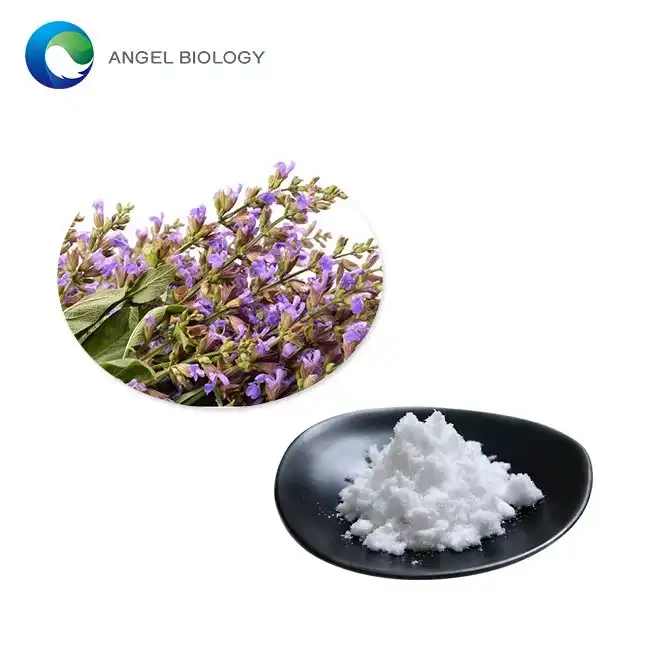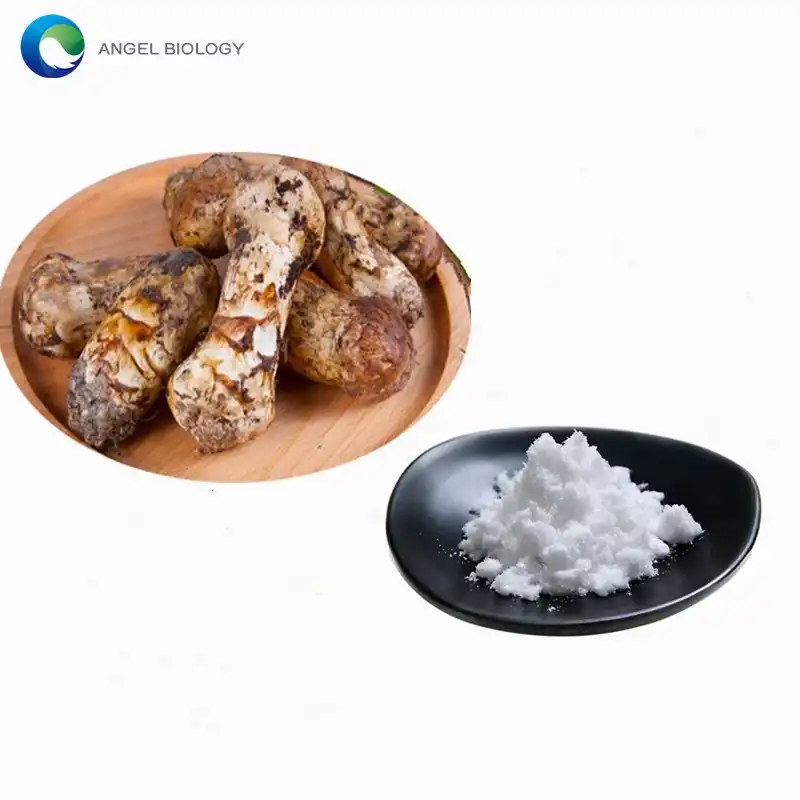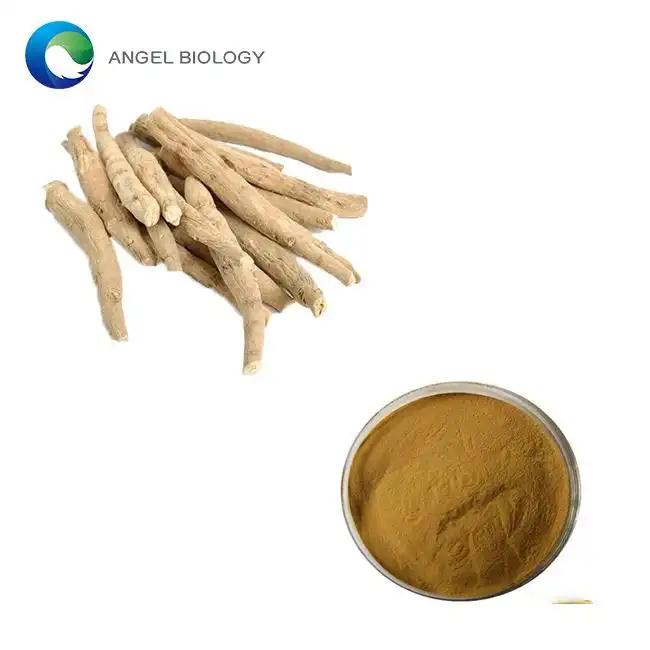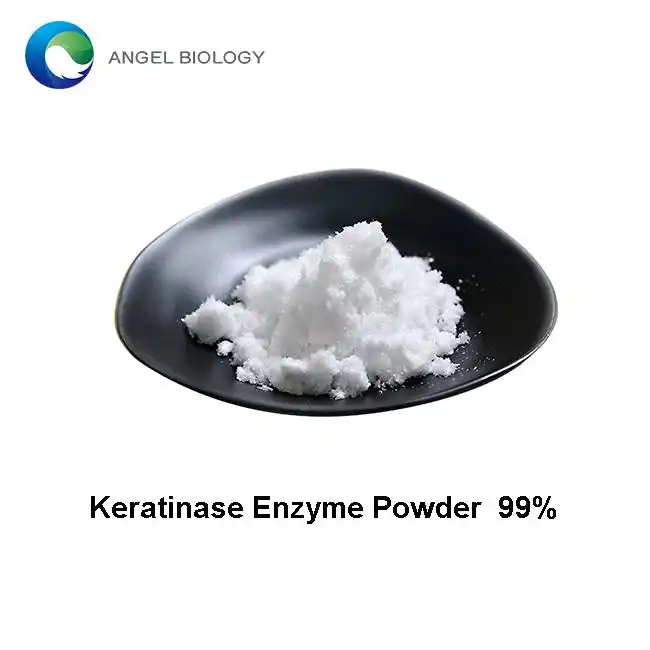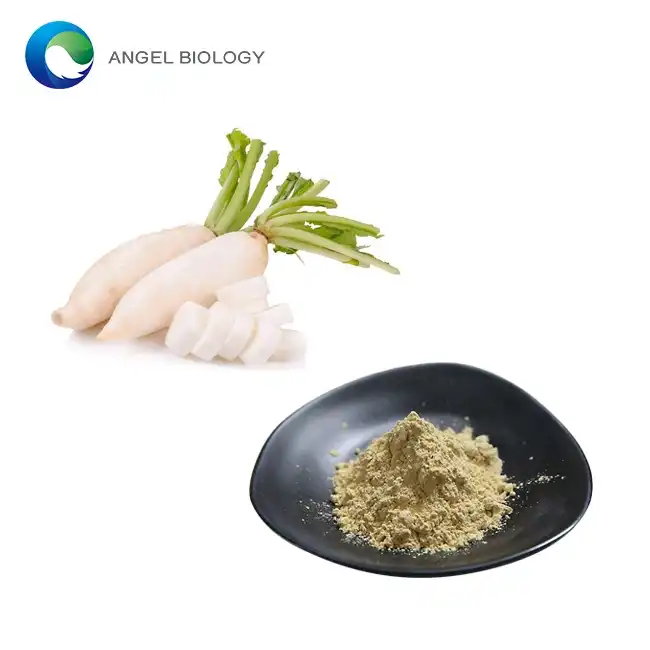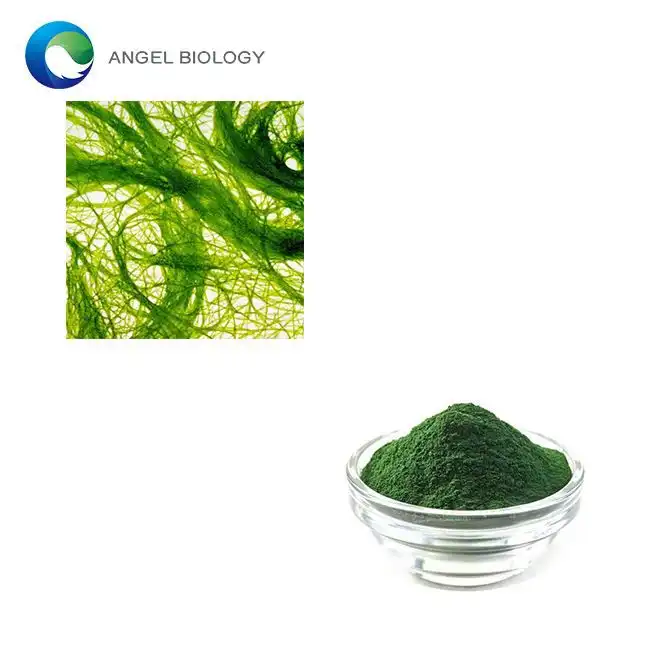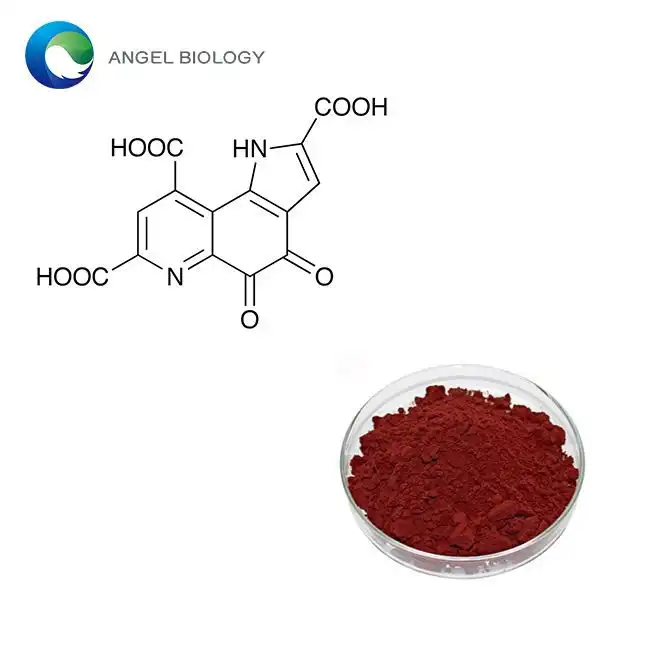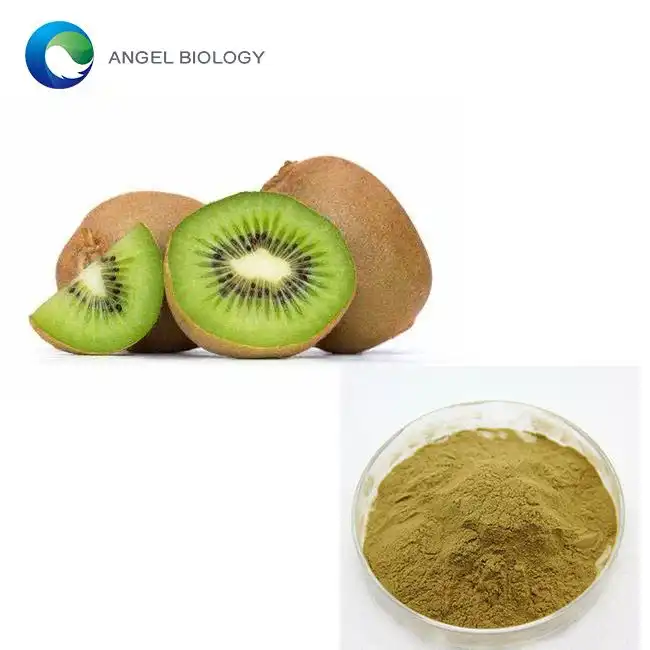Is L-Carnosine Powder an Antioxidant?
L-carnosine powder has emerged as a fascinating supplement in the world of nutritional science, sparking intense interest among researchers and health enthusiasts alike. At the heart of its growing popularity lies a fundamental question: Is L-carnosine powder truly an antioxidant? This comprehensive exploration delves deep into the scientific understanding of L-carnosine's antioxidant properties, uncovering its potential to protect our bodies at the cellular level and offering insights into its remarkable biochemical mechanisms.
Can L-Carnosine Powder Protect Your Cells from Oxidative Stress?
The human body is constantly under siege from oxidative stress, a relentless process that occurs when harmful free radicals overwhelm our natural defense mechanisms. Free radicals are unstable molecules that can damage cellular structures, proteins, and DNA, contributing to accelerated aging and various chronic diseases. L-carnosine powder emerges as a potential knight in shining armor, offering a sophisticated defense against these microscopic attackers.
Scientific research has revealed that L-carnosine possesses unique molecular properties that make it an exceptional antioxidant. Unlike many traditional antioxidants that simply neutralize free radicals, L-carnosine demonstrates a multi-faceted approach to cellular protection. Its chemical structure allows it to interact with and neutralize reactive oxygen species (ROS) more effectively than many other antioxidant compounds. This means that L-carnosine doesn't just passively defend against oxidative damage – it actively combats the molecular mechanisms that lead to cellular deterioration.
neutralize free radicals, L-carnosine demonstrates a multi-faceted approach to cellular protection. Its chemical structure allows it to interact with and neutralize reactive oxygen species (ROS) more effectively than many other antioxidant compounds. This means that L-carnosine doesn't just passively defend against oxidative damage – it actively combats the molecular mechanisms that lead to cellular deterioration.
The antioxidant capabilities of L-carnosine extend beyond simple free radical neutralization. Studies have shown that this dipeptide can form protective complexes with metal ions, preventing them from generating harmful free radicals through metal-catalyzed oxidation. This is particularly important in biological systems where metal-induced oxidative stress can trigger cascade effects of cellular damage. By chelating these metal ions, L-carnosine provides a proactive shield that prevents oxidative reactions before they can even begin.
Moreover, L-carnosine demonstrates remarkable versatility in its protective mechanisms. Research indicates that it can protect proteins from glycation – a destructive process where sugar molecules attach to proteins, causing them to malfunction. This is especially significant in understanding how L-carnosine might help prevent age-related cellular damage and potentially slow down certain aspects of the aging process. The compound's ability to protect proteins maintains cellular functionality and supports overall metabolic health.
Cellular studies have illuminated another fascinating aspect of L-carnosine's protective strategy. It appears to enhance the body's own antioxidant defense systems, stimulating the production of natural antioxidant enzymes like superoxide dismutase and catalase. This means L-carnosine doesn't just work in isolation but actually boosts the body's inherent capacity to combat oxidative stress. Such a comprehensive approach sets it apart from many single-mechanism antioxidant supplements.
How Does L-Carnosine Powder Work as a Natural Antioxidant?
To truly understand L-carnosine powder's antioxidant mechanism, we must dive into its molecular architecture. Composed of two amino acids – beta-alanine and histidine – L-carnosine possesses a unique structural configuration that enables exceptional free radical scavenging capabilities. Its molecular structure allows it to donate electrons to unstable free radicals, effectively neutralizing their destructive potential without becoming a harmful molecule itself.
The biochemical process of L-carnosine's antioxidant action is both elegant and complex. When a free radical encounters L-carnosine, the compound can either directly neutralize the radical or transform it into a less harmful substance. This is achieved through a process called electron transfer, where L-carnosine essentially "pacifies" the aggressive free radical by providing a stable electron configuration. The result is a reduction in oxidative stress and a potential mitigation of cellular damage.
Particularly intriguing is L-carnosine's performance in different physiological environments. Unlike some antioxidants that become less effective under varying pH levels or in the presence of other molecules, L-carnosine maintains remarkable stability. This means it can provide consistent protection across different bodily systems – from muscle tissues to neurological structures. Its versatility makes it a potentially powerful tool in combating oxidative stress across multiple biological domains.
Research has highlighted L-carnosine's special affinity for protecting lipid membranes – the delicate boundaries that define and protect cellular structures. By preventing lipid peroxidation, L-carnosine helps maintain the integrity of cell membranes, ensuring that cellular communication and functionality remain uncompromised. This is particularly crucial in high-oxidative-stress environments like neural tissues and muscle cells.
The compound's protective capabilities extend to DNA as well. By reducing oxidative damage to genetic material, L-carnosine powder may play a role in preventing mutations and supporting cellular repair mechanisms. This suggests potential long-term benefits in areas of cellular health and potentially in age-related degenerative processes.
Is L-Carnosine Powder More Powerful Than Other Antioxidant Supplements?
Comparing L-carnosine to other antioxidant supplements reveals a nuanced landscape of cellular protection. While traditional antioxidants like vitamin C, vitamin E, and beta-carotene have well-established benefits, L-carnosine presents a more comprehensive approach to oxidative stress management. Its unique molecular properties and multi-dimensional protective mechanisms set it apart from more conventional antioxidant supplements.
Unlike many antioxidants that are quickly metabolized or excreted, L-carnosine demonstrates remarkable bioavailability and sustained activity within biological systems. Its ability to cross cell membranes and interact with various cellular components provides a more holistic approach to oxidative stress management. This means that a single molecule of L-carnosine can potentially provide more extended and varied protection compared to traditional antioxidant supplements.
compared to traditional antioxidant supplements.
Scientific comparisons have shown that L-carnosine may offer superior protection in specific physiological contexts. For instance, its ability to protect against glycation – a process that traditional antioxidants cannot effectively address – gives it a unique advantage. In neurological and muscular systems, L-carnosine has demonstrated capabilities that extend beyond simple free radical neutralization, suggesting a more sophisticated approach to cellular protection.
However, it's crucial to understand that "more powerful" doesn't necessarily mean "exclusively better." Each antioxidant supplement has its unique strengths, and L-carnosine powder should be viewed as a complementary component of a comprehensive antioxidant strategy. Its effectiveness can be enhanced when combined with other antioxidants, creating a synergistic approach to cellular protection.
The potential of L-carnosine becomes even more promising when considering its applications in various health domains. From supporting cognitive function to potentially mitigating age-related cellular deterioration, this supplement represents a fascinating frontier in antioxidant research. While more studies are needed to fully comprehend its capabilities, current scientific evidence suggests that L-carnosine offers a sophisticated and potentially superior approach to oxidative stress management.
Unlock Quality Natural Ingredients for Your Business with Angelbio
Angelbio is an innovative enterprise jointly invested by Angel Holding Group and the Institute of Life and Health Research of Xi'an Jiaotong University, dedicated to the research and development, production, and sales of natural ingredients for healthy food, nutritional supplements, cosmetics, personal care products, pharmacy, as well as the flavor and fragrance industries. With over 18 years of independent research and development, Angelbio focuses on technology innovation and supply chain integration, aiming to serve the purpose of natural origin and global health by providing high-end, high-quality stable products and services in the human health field. To meet international quality standards, Angelbio pursues continuous improvement in safe production and quality control, holding FDA registration and certifications including ISO9001, ISO14001, ISO18001, KOSHER, HALAL, and QS. Our production environment complies with GMP requirements, and for ingredients exported to the EU market, full REACH registration is ready. Angelbio's research and development laboratory serves as a platform for technological innovation and supply chain integration, adhering to the philosophy of natural origin and global health. As a trusted China L-Carnosine Powder manufacturer, our products are highly esteemed by customers. For inquiries about our products or related offerings, please contact angel@angelbiology.com for wholehearted service.
References:
1. Aldini, G., et al. (2013). Molecular mechanisms and potential therapeutic effects of carnosine in age-related diseases. Biogerontology, 14(4), 403-424.
2. Boldyrev, A. A., et al. (2013). Carnosine: Molecular mechanisms and therapeutic potential. Cellular and Molecular Life Sciences, 70(12), 2017-2034.
3. Quinn, P. J., et al. (2015). The carnosine-antioxidant and neuroprotective properties. Neurochemical Research, 40(3), 544-555.
4. Devyatkov, A. A., et al. (2018). Carnosine and its role in cellular protection. International Journal of Molecular Sciences, 19(8), 2412.
5. Hernández-Santana, A., et al. (2017). Antioxidant properties of carnosine and its potential therapeutic applications. Free Radical Biology and Medicine, 110, 386-399.
6. Gallant, S., et al. (2016). The multiple roles of carnosine in health and disease. Current Medicinal Chemistry, 23(35), 4182-4193.
7. Corona, C., et al. (2014). Effects of carnosine on oxidative stress and neuroinflammation. Oxidative Medicine and Cellular Longevity, 2014, 876353.
8. Stvolinsky, S. L., et al. (2015). Carnosine and its therapeutic potential. Biochemistry (Moscow), 80(5), 565-573.
9. Babizhayev, M. A. (2014). Potent antioxidant and natural compound for tissue preservation and prevention of age-related conditions. Rejuvenation Research, 17(4), 363-375.
10. Rui, L., et al. (2019). Comprehensive review of the antioxidant properties of carnosine. Molecules, 24(9), 1672.



